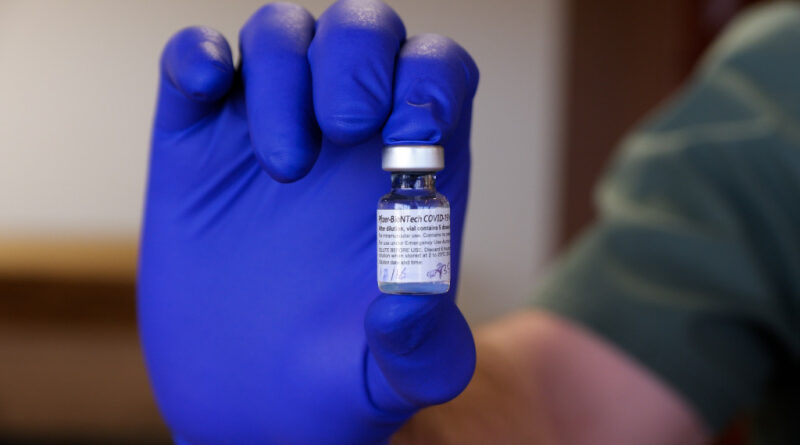FDA Grants Full Approval to Pfizer Vax, Warns Against Antiparasitic
The Food and Drug Administration Monday morning announced it had granted full approval to Pfizer-BioNTech’s coronavirus vaccine, making it the first vaccine to move beyond the emergency use status.
The agency gave approval for the vaccine for people 16 and up. It will continue to be authorized for emergency use for children ages 12 to 15 while the company continues to collect the data needed to gain full approval.
“The FDA’s approval of this vaccine is a milestone as we continue to battle the COVID-19 pandemic. While this and other vaccines have met the FDA’s rigorous, scientific standards for emergency use authorization, as the first FDA-approved COVID-19 vaccine, the public can be very confident that this vaccine meets the high standards for safety, effectiveness, and manufacturing quality the FDA requires of an approved product,” said acting FDA Commissioner Janet Woodcock, M.D. “While millions of people have already safely received COVID-19 vaccines, we recognize that for some, the FDA approval of a vaccine may now instill additional confidence to get vaccinated. Today’s milestone puts us one step closer to altering the course of this pandemic in the U.S.”
A decision on Moderna’s full approval isn’t expected for a few more weeks. Johnson & Johnson has not yet applied for full approval but is expected to soon.

On Aug. 21, the agency also warned people to eschew taking a common veterinary antiparasitic as a COVID treatment or preventive.
“FDA has not approved ivermectin for use in treating or preventing COVID-19 in humans,” the agency said. “Ivermectin tablets are approved at very specific doses for some parasitic worms, and there are topical (on the skin) formulations for head lice and skin conditions like rosacea. Ivermectin is not an anti-viral (a drug for treating viruses).”
The FDA also said that taking large doses of ivermectin is dangerous, and overdosing can cause nausea, vomiting, diarrhea, low blood pressure, allergic reaction, dizziness, problems with balance, seizures, coma, and even death.
“Even the levels of ivermectin for approved uses can interact with other medications, like blood-thinners,” the agency added.
“Ivermectin has been shown to inhibit the replication of SARS-CoV-2 in cell cultures,” the National Institutes for Health wrote in February. “However, pharmacokinetic and pharmacodynamic studies suggest that achieving the plasma concentrations necessary for the antiviral efficacy detected in vitro would require administration of doses up to 100-fold higher than those approved for use in humans.”
The NIH said that the studies on Ivermectin were also not without flaws.
“ … most of these studies had incomplete information and significant methodological limitations, which make it difficult to exclude common causes of bias,” the agency said.
The sample sizes of the trials were small. The dosage and schedule of administering Ivermectin was not homogenous. Some of the randomized control trials were open-label studies, instead of the preferred blind study. Some patients received several medications (such as doxycycline, hydroxychloroquine, azithromycin, zinc, and steroids) in addition to the antiparasitic, which “confounded the assessment of the efficacy or safety of ivermectin.”
In other cases, how severe the cases being treated was unclear, and the outcome measures weren’t clearly defined.
In March, a randomized controlled trial published in the journal JAMA found that the drug didn’t speed recovery in people with mild cases of COVID. It was unclear if it helped patients who were very ill with the virus, however.
In other news:
- Parkland Hospital said Friday it is preparing a fourth ward to help care for a new wave of COVID-19 patients hospitalized due to complications from the virus.
- Dallas ISD families without reliable home internet can apply for a high-speed home internet connection at no cost. To apply for this service, families need to complete the online application before Aug. 31.
- Also on Friday, Gov. Greg Abbott announced that the Texas Department of State Health Services (DSHS) and the Texas Division of Emergency Management (TDEM) will deploy additional medical personnel and launch more COVID-19 antibody infusion centers across the state this week.





